
This is my favorite portrait of Walt Whitman. This Walt Whitman is not the "good gray poet" we are taught about in school. This portrait is sometimes called his "Christ" portrait, and one can see why. There is serenity in this portrait and Whitman looks deeply spiritual. That calm gaze penetrates you, knows you, exudes compassion. It's hard to look away. But Whitman was also a man of contradictions, and he himself warned that he wasn't the good-natured, easy friend we might suppose him to be:
Are you the new person drawn toward me, and asking something significant of me? / Do you think it so easy to have me become your lover? / Do you suppose I am trusty and faithful? / Do you see no further than this facade--this smooth and tolerant manner of me?
There's much about Whitman that has the capability to offend, but that is what makes reading him so delicious. To understand Whitman, we must have learned to understand paradox and contradiction. To understand Whitman, we have to be able to relish life's questions. Whitman's poetry was dangerous when it was written and it's dangerous now, and that's why I love it. It is non-conformist in every way. To read and to understand a Whitman poem is to become potentially dangerous yourself, and I like the edginess of that. One of the things I most love about Walt Whitman is his affection for his unseen reader, which is palpable in his poems "Song of Myself," "I Sing the Body Electric," "Song of the Open Road," and, my favorite, "Crossing Brooklyn Ferry":
I am with you, you men and women of a generation, or ever so many generations hence, / I project myself, also I return--I am with you, and you know how it is.
What is so beautiful about this, for me, is that Whitman transcends time and place and at the same time he renews my belief that being a writer is an important thing, a life-affirming thing. His presence is so real as I read his poems that I can feel his breath stirring my hair or warming the back of my neck. Whitman's poetry was not very popular in his own time, and excepting Hart Crane's work, Whitman's influence was not what I would call huge for the first half of the 20th Century. Whitman came to power in the 1950s and 1060s with the Beats who loved those long lines of free verse, the sexual freedom in the lines, the expansion and the movement in the lines which Kerouac would act out in writing On The Road. By the 1970s, when I did my undergraduate work, Walt Whitman was a necessary part of the literature curriculum, though somewhat of an ill fit for post-Watergate times. I remember that the cynicism of that decade made it difficult for me to connect with Whitman's poems and yet I saved my lumpy battered copy of Leaves of Grass, and I still have that college copy, although it got soaked when Allen accidentally drove into a swamp and flooded the whole bottom of our car. I knew the poems were important; I just didn't know how to understand them. To explicate a Whitman poem line by line is to destroy the spirit and life of the poem. But explication was what I did best in those days.
I think Whitman is a poet you must come to several times throughout your life. You must keep a copy of Leaves of Grass on hand and you must take it off the shelf and dust it off and read it now and again. You have to let the poems penetrate you like Whitman's eyes penetrate you in that portrait. When you do that, you can feel the divinity of everything. I've read Whitman enough at this point in my life that I do feel he is with me. As I think about it, I live in cynical times now. But something about me has changed enough to let Walt Whitman in. I've long ago given up on absolutes, and I'm not that naive young wife and mother who believed everything in my life would turn out just great because I was doing what I was "supposed" to and so I somehow deserved success. In fact, my whole idea of success was different then, more mainstream. Now I work to define success in a way that makes sense for me. This has broadened my concept of what it means to embrace life. It is as Isaac Gewirtz says of Whitman, that he had an authentic experience of the cosmos "and all that it contains--rivers, clouds, stars, animals, cruelty, compassion, and, especially, his own and other soul/bodies journeying down the open road." To me life is about his kind of realization, this kind of connection.
I bought a little jewelry box at the Goodwill yesterday for a dollar. I want to make an art box out of it and call it my Whitman Box.



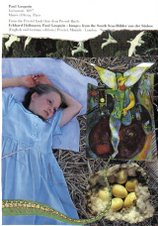


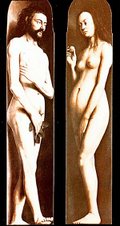

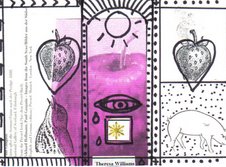
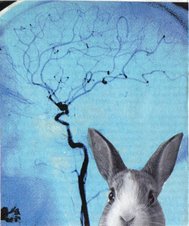
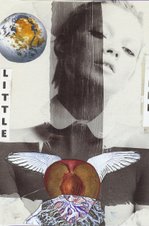
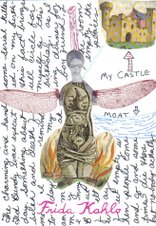
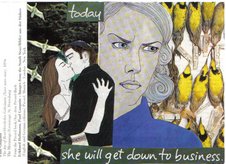

3 comments:
You know I love Whitman, and this entry is a great one. I've been reading Song of Myself lately, and what you wrote about experiencing Whitman at different times in your life is so true. It means something entirely different to me now than it did the first time I read it in my teens.
Ah, I love Whitman too, especially Leaves of Grass...
Judi
Theresa, you have inspired me to break out some Whitman. When I read him in college, I admit that I couldn't quite see what all of the fuss was about. Perhaps now I'll be able to appreciate his work more thoroughly.
That portrait is amazing ... really hypnotizing.
Post a Comment